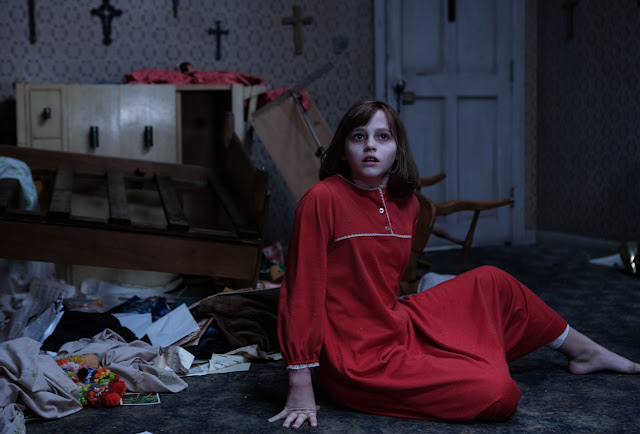"A silently impressive story of a young boy's survival."
A young Bedouin boy plays the deadly game of survival and betrayal in Theeb, the debut feature of British-born, Jordan-based filmmaker Naji Abu Nowar. Set in 1916 western Arabian desert, this coming-of-age film parallels a boy’s adventure to its part-historical and part socio-political backdrop.
Theeb (Jacir Eid), meaning “wolf” in Arabic, is the third
and youngest son of a recently deceased sheik. He is raised by his adult
brother Hussein (Hussein Salameh) who is second in line. Coming from a family
of pilgrim guides, the brothers live a traditional Bedouin life. Their innate
cultural values are tested when desert guide Marji (Marji Audeh) and English
soldier Edward (Jack Fox) appear out of the inky desert night to the tribe’s
encampment. The duo asks them to be accompanied to a Roman-era well which has
been abandoned since the establishment of a nearby Ottoman train track. The
rules of Bedouin hospitality leave the family no other option but to send
Hussein as their guide.
However, Theeb secretly trails behind the trio and soon they
are forced to take him along the journey when they discover him. The desert soon
becomes perilous for the small caravan as the terrain which once frequented by
pilgrims is now inhabited by marauders, mercenaries and insurgents. Suddenly,
riders in black appear on the horizon, ambushing them, killing Marji and
Edward, and forcing the brothers to seek refuge on higher ground. The shooting
ensues the following day and Hussein is also killed. Young Theeb is left alone
to survive and his fate is further challenged when one of the enemy shooters
(Hassan Mutlag), apparently seriously injured, shows up with a promise of
helping him.
Almost faithful to the point of view of the title character,
Theeb keeps a very small and tight
cast. The boy is almost always in every frame and audience is given the
impression of perceiving the situations in his shoes. His interactions with the
handful of characters are vivid and elaborate. While Theeb is consistently
warm-hearted, witty and playful, his relationships with other people vary. With
Hussein, there is a certain air of brotherly protectiveness, while towards
Edward, there is distant curiosity. For the black Samaritan, he is cold and
cautious.
The film is an honest realism, gracefully portraying its survival
theme with both individual and historical context. Superficially, it is Theeb’s
personal battle to survive. After witnessing his brother shot and killed, the
protag must then brave the merciless desert and its hidden perils. He is
trained in the ways of the nomads and his knowledge is practically put to the
test. His family’s and clan’s honor is also in the line here. An unwelcome help
comes from someone who belongs to the group that shot his brother. This is
another survival game for Theeb as he balances his suspicions and desire to
live. As the lead is a young boy, there is such an innocence and purity in his
ways that matters of honor and revenge is cleverly clouded with uncertainty.
The film is set during the period known as Arab Revolt.
While the Arabs seek independence from the Ottoman Turks, the Bedouin culture
also faces radical shifts. With the construction of railways that go all the
way to Mecca (appropriately nicknamed as the Iron Donkey Trail), it would
eliminate the need for pilgrim guides like Hussein and the tribe. Thus, it has
become a survival for the way of life of the Bedouins, that the future of
traditional nomadic lifestyle is coming to an end, and young Theeb is a witness
to these changes.
Shot entirely in Jordan, the movie beautifully captures the
wide-open desert. It breadth is imposing and its aridity is overwhelming.
Textures and patterns are striking, from the lonely expanse of endless sands to
the vertigo-inducing canyons and grooves. But more than the physicality of the
location, it is the way it is framed to stir emotions and intensify the
struggles that make the film truly commendable. Plus, the musical scores
perfectly synchronize the tones and moods of the moments.
Newcomer Eid is brilliant as Theeb as he genuinely delivers
the bravery, self-absorption and sly of a boy forced into unforgiving
conditions. His rapport with Salameh as Hussein is also warm and winning.
Theeb is a
slow-burning story of survival. It is a thorough study of a little savage driven
to summon his natural instincts to endure silent perils. With its humbly yet
impressive cinematography and music, it is an awe-inspiring movie, Jordan’s worthy
entry for the Best Foreign Language film at the 88th Academy Awards.
Production companies: Bayt Al Shawareb, Immortal Entertainment, Noor Pictures
Cast: Jacir Eid, Hassan Mutlag, Hussein
Salameh, Marji Audeh, Jack Fox
Director: Naji Abu Nowar
Screenplay: Naji Abu Nowar, Bassel Ghandour
Producers: Bassel Ghandour, Rupert Lloyd
Executive producer: Nadine Toukan
Co-producers: Nasser Kalaji, Laith Majali
Director of photography: Wolfgang Thaler
Production designer: Anna Lavelle
Costume designer: Jamila Aladdin
Editor: Rupert Lloyd
Music: Jerry Lane

























0 comments:
Post a Comment